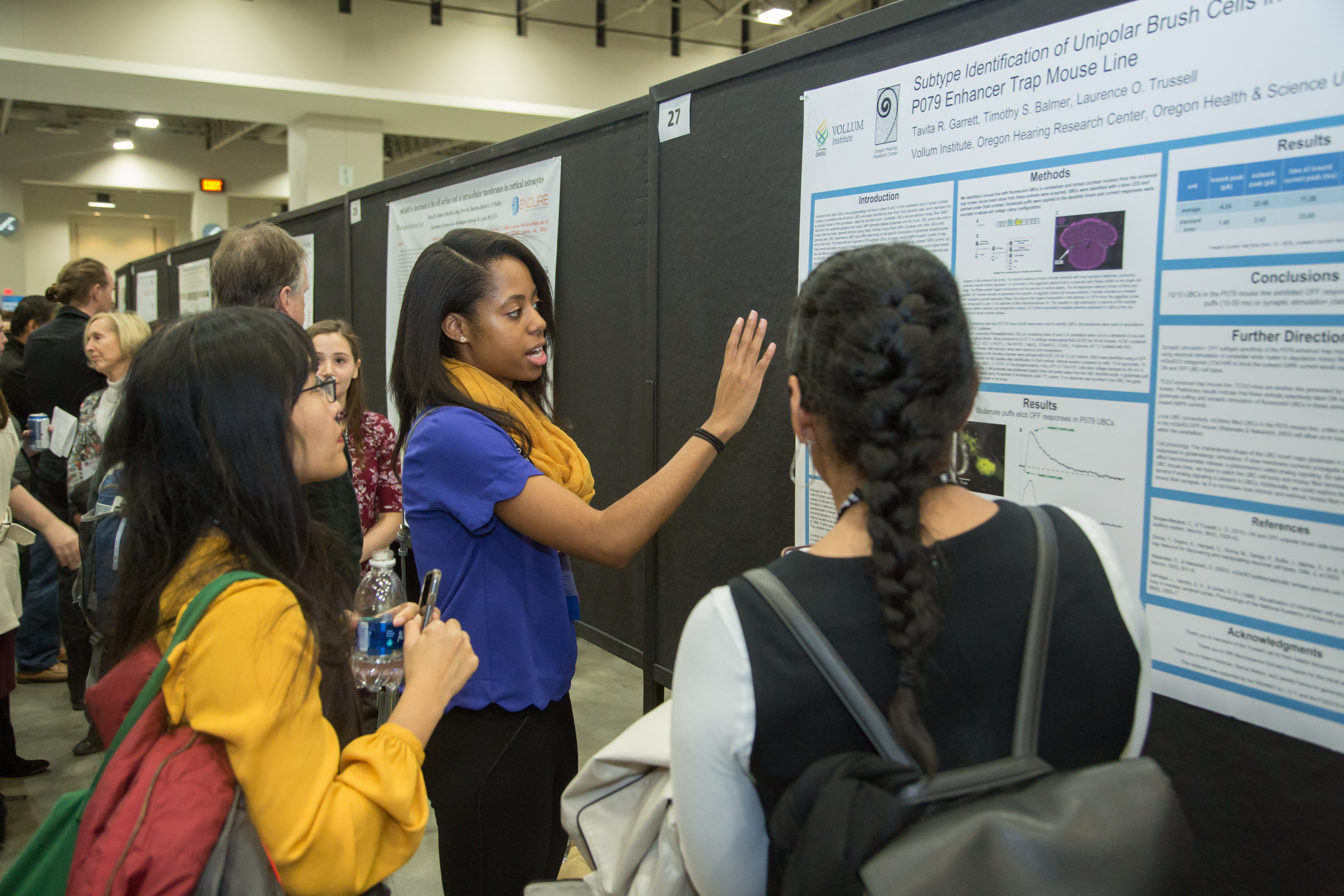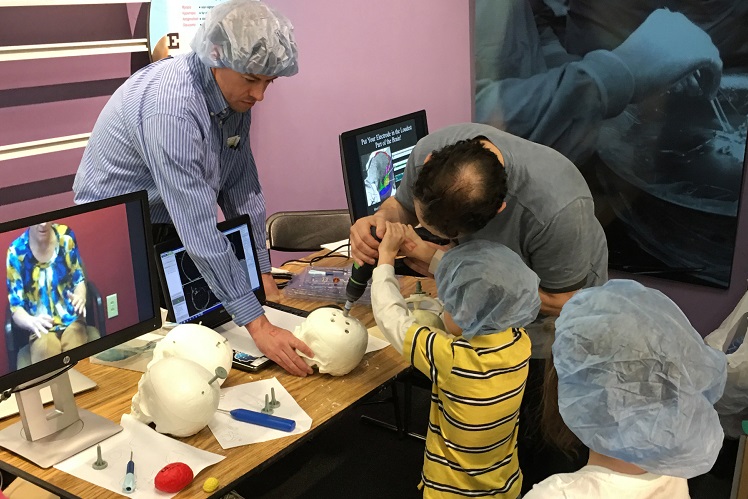
Policymakers Connect With Researchers at Neuroscience 2017
As policymakers stepped onto the escalator and looked out over the poster and exhibit floors at Neuroscience 2017, their jaws dropped, SfN member Michael Fox said. “It’s difficult to appreciate how big of an enterprise neuroscience research is until you walk onto a poster floor at SfN and you see thousands upon thousands of posters and 30,000 neuroscientists; they were impressed,” said Fox, director of the Developmental and Translational Neurobiology Center at Virginia Tech Carilion Research Institute.
Congressional Offices at Neuroscience 2017
Sen. Shelley Moore Capito (R-WV)
Sen. Susan Collins (R-ME)
Sen Charles Schumer (D-NY)
Rep. Ted Budd (R-NC)
Rep. Bonnie Watson Coleman (D-NJ)
Rep. Raul Grijalva (D-AZ)
Rep. Jerry McNerney (D-CA)
Rep. Frank Pallone (D-NJ)
Rep. John Yarmuth (D-KY)
Leveraging the Washington, D.C., locale and the breadth of research presented at Neuroscience 2017, SfN invited members of Congress and their staff to come to the meeting and connect with constituents who were presenting research aligned with the lawmakers’ scientific areas of interest.
“Rep. Ted Budd (R-NC) and Andrew Bell, his chief of staff, were gobsmacked by what they saw at Neuroscience 2017,” said Brenna Beckelman, a PhD candidate at Wake Forest School of Medicine Health. “They both remarked on the unbelievable size and scope of the conference, and they were even more surprised by the interplay between private businesses and individual scientists and universities. Bell remarked to me that he didn’t realize how close we were to living in the future.”
These interactions between scientists and lawmakers are essential to ensure policymakers understand how the decisions they make about federal investments in biomedical research translate into scientific progress and economic growth.
“This is a unique opportunity for members of Congress to see our work and the relevance of this work for human health,” said Katalin Gothard, professor of physiology and neuroscience at the University of Arizona College of Medicine. She presented her research on oxytocin’s role in social interaction to Rep. Jerry McNerney (D-CA) and an aide to her local member of Congress, Rep. Raul Grijalva (D-AZ). “They get to see that the scientific process is slow, self-correcting, and requires us to go painstakingly through small steps that are all necessary to reach an answer. The answer may not be a major breakthrough by itself but a critical piece of a larger puzzle.”
This discussion with policymakers doesn’t end at Neuroscience 2017; it builds a foundation for an ongoing relationship with the lawmakers and their staff. “We are planning to continue this conversation and let the members of Congress know our goals, our successes, and also the challenges and difficulties that we face,” Gothard said. “We hope that when legislative issues come up that are relevant for science, the members of Congress have a face and a project in mind that they intimately know and care about.”
Neuroscience advocates can get involved throughout the year to help policymakers understand the value of robust funding for biomedical research and scientifically vetted policies. “In my interactions with congressional leaders and their staff, there’s a huge amount of interest in brain research,” said Moses Chao, an SfN past president and incoming chair of the Government and Public Affairs Committee. “I haven’t met anybody that’s not interested.”
Take Your Advocacy to the Next Level
Refine Your Advocacy Skills
This four-part webinar series is designed to maximize your advocacy efforts.
Watch Now: Leveraging Public Opinion in Support of Science
February 23: Strategies to Maximize Your Advocacy Results
April 18: Inspiring Others to Be Science Advocates
June 1: Measuring Advocacy Outcomes
SfN members can leverage policymakers’ interest in the brain to advocate for biomedical research — but clear and concise communication is key. Neuroscientists can enhance their communication and advocacy skills through Taking Your Advocacy to the Next Level, SfN’s four-part webinar series created in partnership with Research!America.
Neuroscientists can put some of their newly honed advocacy skills to the test during SfN’s Capitol Hill Day, taking place March 8. As SfN’s hallmark advocacy event of the year, Hill Day brings SfN advocacy leaders, Early Career Policy Ambassadors, and volunteer leadership to Washington, D.C., to meet with members of Congress and their staffers. If you can’t come to Washington, you can invite your members of Congress to visit your lab.
“The more scientists can start this dialogue to help explain what we do and why we do it, it’s going to be better for science in the long run,” Fox said. Hill Day is the perfect opportunity for SfN members to develop these connections with policymakers and to discuss advances in the field of neuroscience, as well as the economic and public health benefits of investment in biomedical research through NIH and NSF.
Join in SfN’s advocacy efforts from your home institution and with your local chapter, and find opportunities to participate by subscribing to SfN’s Advocacy Network. Contact advocacy@sfn.org for additional information.



















